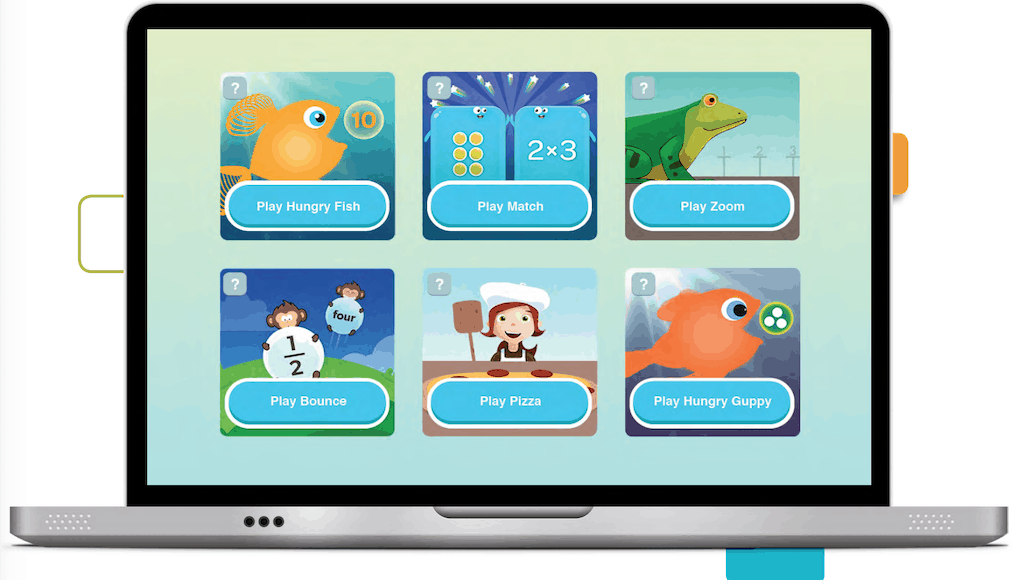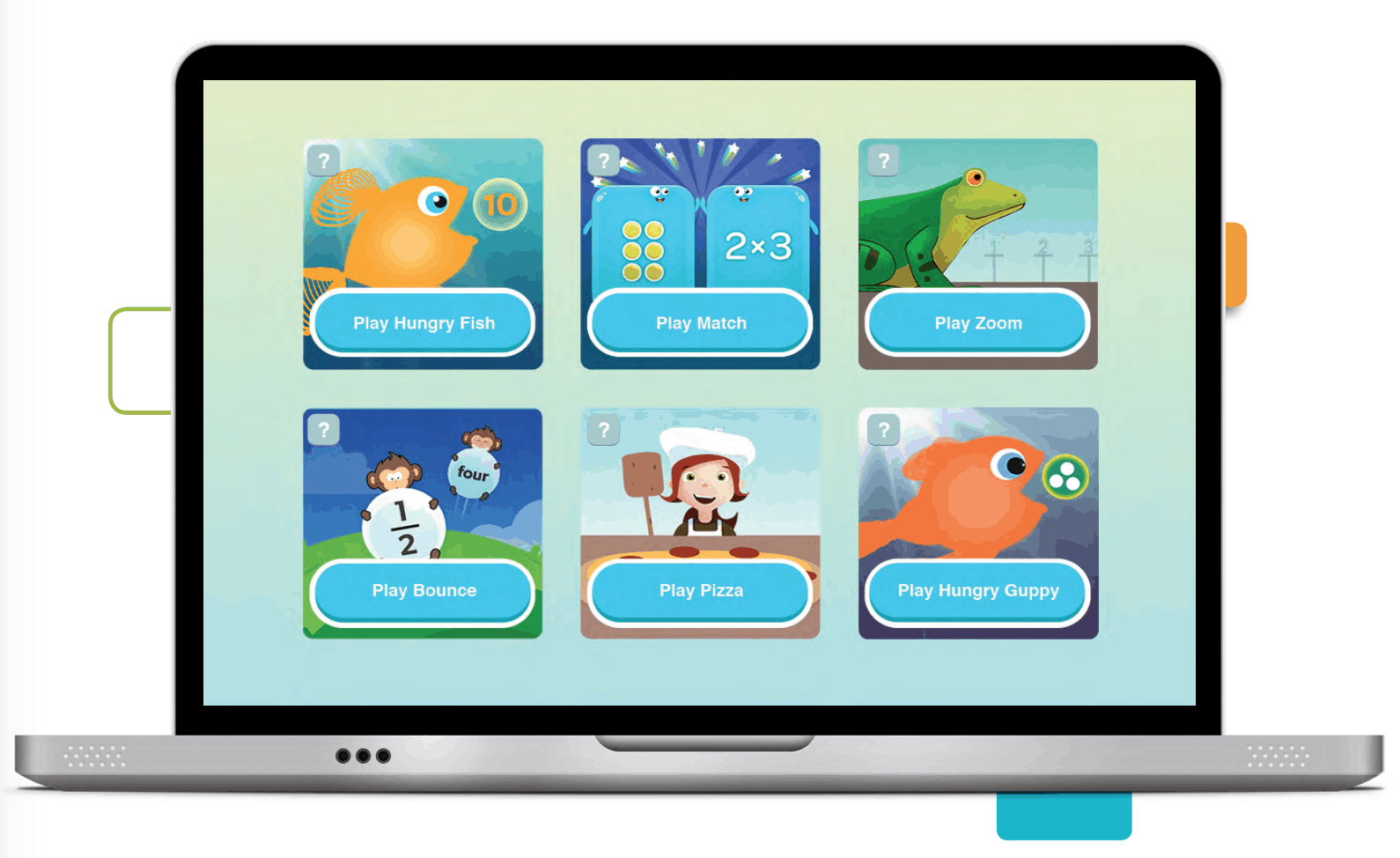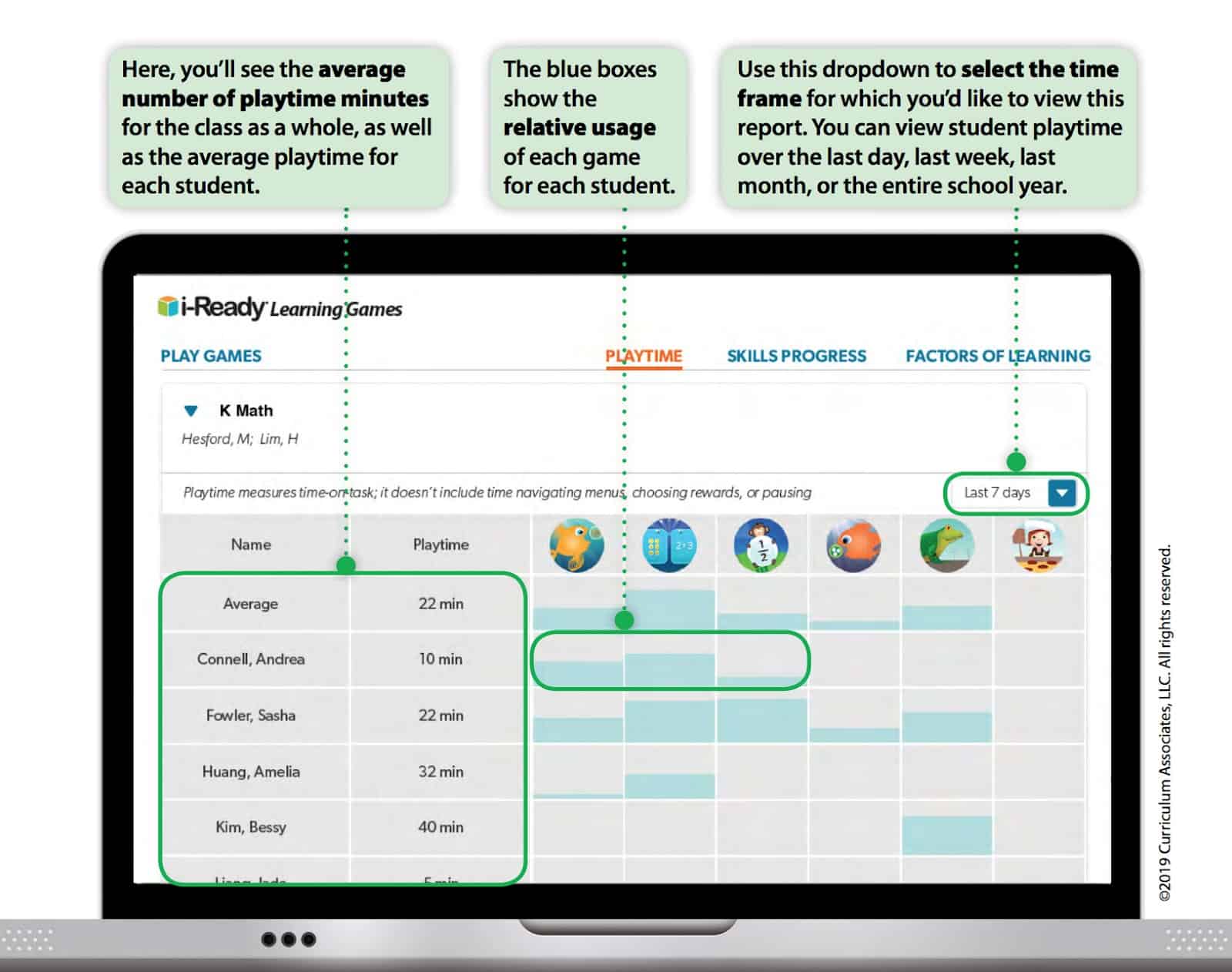Playing With Purpose: Using Games to Enrich Learning & Engage Students

At Getting Smart, we’re always looking for innovative edtech that can support the development of deeper learning, enable more integrated assessment strategies, and make room for teachers to give individualized attention to students. With the new school year underway, Curriculum Associates recently announced new “Learning Games” that check all three of these boxes and emphasize another key feature… fun!
Always Getting Better: A Commitment to Engaging Students
In 2017, we shared that Curriculum Associates had acquired online game company Motion Math, bringing innovative new tools to help deepen student engagement and further achievement. The company has since developed a new Learning Games division based on this partnership, and they spent the last school year piloting an exciting offering of educational games with a small group of schools. With the data and user feedback from that pilot, they have now rolled out Learning Games as a supplement to digital instruction in i-Ready to help students develop a positive relationship with math concepts through adaptive and challenging play.
One of Curriculum Associates’ key focuses for the 2019-2020 school year is early math. With Learning Games, Curriculum Associates is aiming to create a more engaging, accessible and motivating experience for students, a more powerful and supportive tool for educators, and a more comprehensive offering for English learners.
To accomplish this, they integrated Learning Games into i-Ready Instruction and Ready Classroom Mathematics for students in grades K-5. As a fun way to both practice skills and build visual mental models of key concepts, the games (recommended to be played for around 20 minutes per week) can easily be incorporated into regular class time, rotation stations, or enrichment activities, or even played at home.
Curriculum Associates continues to seek ways to develop those essential skills in students and boost overall math fluency. To this end, Learning Games make it easier to give students targeted and personalized levels of challenge and also have a number of mechanisms to encourage the development of growth mindsets. This facilitation of personalization can also help teachers make room for mathematical discourse in the classroom to further deepen students’ understanding of math concepts.
Going Beyond Digital Worksheets
Digital games can be a powerful learning tool when effectively integrated into learning, and Curriculum Associates has found that thoughtfully designed gameplay can further support students and educators in deep and rigorous math learning. Learning Games addresses a wide range of concepts including early number sense, addition, subtraction, multiplication, division, number lines, integer and fraction estimation, economics, proportions, word problems, and more.

The games also give students interactive and engaging ways to control their own experience, with levels of difficulty that are based on Diagnostics data. Having adaptivity functions within each of the eight grade-level-based games allows the system to meet students exactly where they are, while still continuing to push their understanding. Learners build skills and advance as the games provide means to overcome challenges and higher-level problems through hints, scaffolding, and constructive feedback.
As one Colorado teacher reflected, “Games and i-Ready can fit together well if you’re using the data from iReady to know exactly where the holes are that students have. You can find games that fit those particular concepts that they may be needing more work in.” In addition to the differentiation built into the game, there are various controls, settings, and reports accessible to educators. Reports include “Playtime,” measuring the number of minutes spent playing, “Skills Progress,” a real-time snapshot of how students are performing across standards, and “Factors of Learning,” an assessment of how students approach games across four key factors of learning (growth mindset, confidence, productive strategy, self-regulation), based on the choices students make in the games.

Consequently, Learning Games is an effective tool for instilling growth mindsets, which is also a key pillar behind Curriculum Associates’ philosophy and mission. With adaptability and differentiation built-in, the games are designed to develop student agency and motivation while encouraging productive struggle. As students advance within the games or take the next diagnostic, their choices evolve and the difficulty adjusts to a level appropriate to the students’ understanding and their demonstrated level of performance.
Curriculum Associates’ focus on the growth mindset of students is underpinned by their own efforts to be constantly improving. They say they have learned from years from feedback and data collection (and from providing an average of over 60 updates a year) that the best way to learn is to continue pushing forward–and their approach shows that they seek to bring that to students as well as their products.
Overall, Learning Games is an innovative and thought-provoking way to add the fun of games to the math classroom without cheapening learning. Taking into consideration Curriculum Associates’ commitment to continually refining and improving their offerings, we look forward to seeing how Learning Games grows into a useful tool in classrooms across the nation.
For more, see:
- 3 Lessons from Curriculum Associates’ Explosive Growth
- 6 Hallmarks to Building Data Culture
- Helping Every Learner Identify as a “Math Person”
Stay in-the-know with innovations in learning by signing up for the weekly Smart Update.
This post includes mentions of a Getting Smart partner. For a full list of partners, affiliate organizations and all other disclosures, please see our Partner page.






Cony Sister
I like the way the educational system is changing and moving towards technologies and modern trends. Games are a great approach to understand and remember facts better. Moreover, games develop strategical thinking, which makes decisions more reasoned.
Kings Corner
I have also read an article stating that on some parts in Asia, students who excel in gaming can now take a course and study for it. They have already included gaming on their curriculum.
www.svgmotors.com/
Been using this in my classroom and it really helped student engagement in class.
hammtreeservice.com/
Wow! thanks for introducing this type of learning, this is very helpful for pupils and students.